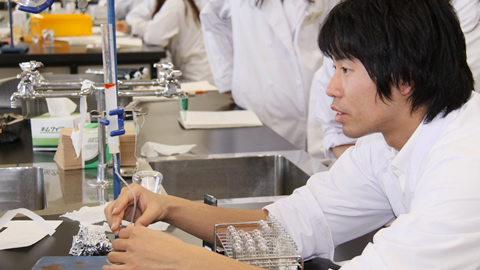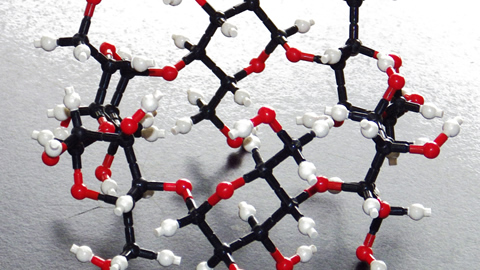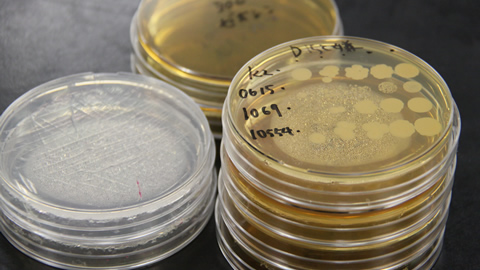Faculty of Life Sciences
Genome is a master plan of a living organism and produced by chemical reactions in it. This is a central issue for the research of Life Sciences. There are growing expectations to nourish our welfare by using the outcomes of the research in this field, which focuses on understanding the mechanisms of living organisms and then leading to new technologies.
In Faculty of Life Sciences, the curriculum covers integratively small molecules to whole body of organisms to design molecules regulating living organisms, exploit the new functions of microorganisms, and analyze higher-order functions such as plant breeding, development system and brain functions of mammal. These are carried out through lectures, experiments and research for diploma thesis. In the curriculum of 4 years, one is expected to build basic and versatile abilities as a generalist as well as techniques as a specialist. With the combinations of knowledge, technique and experiences obtained, one can challenge to find and solve problems and contribute to the future society with their ethical minds.
Departments
General Education
Attached to the Faculty
Institute of Life Sciences
Director YAJIMA Shunsuke, Professor
Isotope Center
Director TOMIZAWA Motohiro, Professor
Culture Collection Center
Director TANAKA Naoto, Professor
Higher Biological Function Analysis Center
Director OBATA Yayoi, Professor



